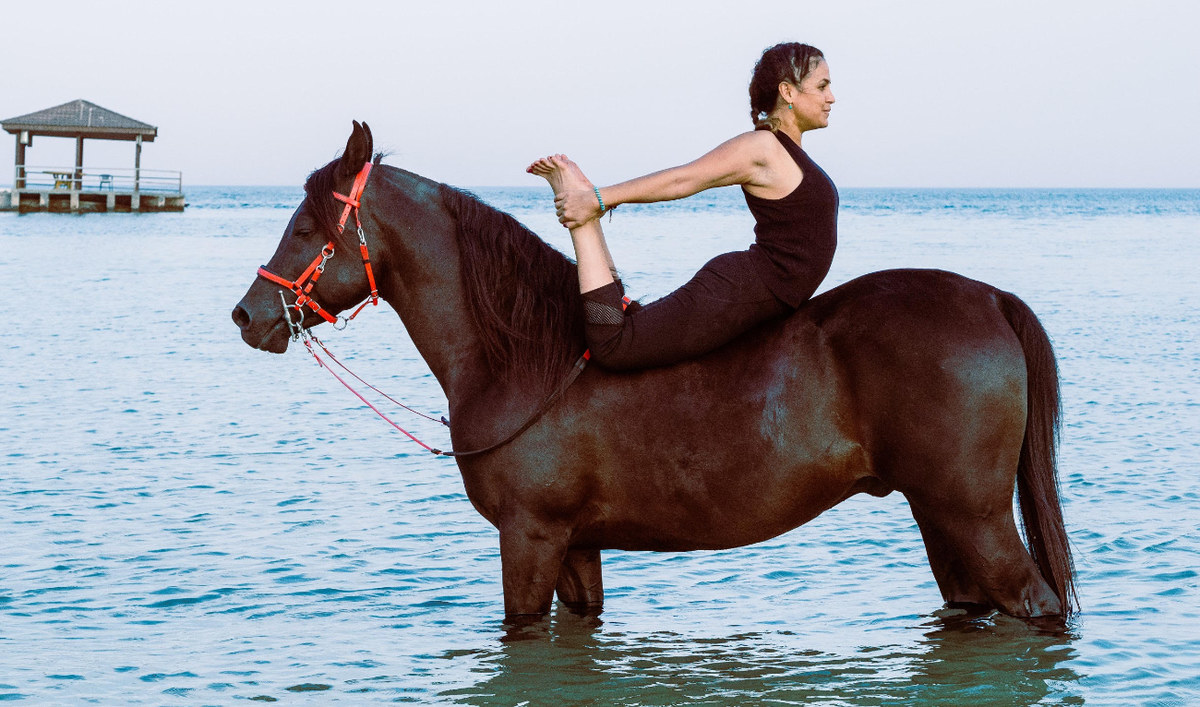RIYADH: Saudi yoga instructor Dana Al-Gosaibi has stepped outside of the norm to practice horse yoga.
Yoga is about combining different physical poses with breathing exercises to meditate or relax, but Al-Gosaibi takes things a step further with horse yoga.
“It’s not about practicing yoga around horses but about the connection between us and the horses, as they feel the energy and they are curious,” Al-Gosaibi told Arab News.
Al-Gosaibi, who started yoga 15 years ago to overcome her mood swings and depression, said that she changed her life dramatically by practicing yoga.
“I wanted to be more aware of my physical and mental body, and I changed my food habits and my sleep pattern, so yoga became a big part of my life,” she said.
The passionate yogi has accrued 2,000 hours of practicing yoga and has certificates in Iyengar and Ashtanga yoga. As an equestrian, Al-Gosaibi chose to combine horsemanship and yoga — with powerful results.
“People misunderstand that we do yoga on the horse’s back, but it’s not just about that. We do yoga around horses. The horse will feel you instantly. Most of us, as horse riders, don’t have ground-level contact with the horse, and we forget to be on the ground around it and let it get close to us, smell us, and hug us. So, when you practice horse yoga, the horse changes, calms, and bonds with you,” she said.

Al-Gosaibi gives horse-guided private empowerment sessions, which focuses on the client’s problem. “What happens is the horse does more of the work in the session, and mostly the participants leave with tears because they didn’t expect the interaction of horses,” she said.
She discovered horse yoga during the pandemic while in lockdown.
“During quarantine, I was around four untamed horses, so my project was to train them, so I spent a lot of time with them and started doing yoga around them,” she said.
“I noticed their behavior had changed around me. In particular, there was an untamed mare where it wouldn’t let me get close to it, but while doing yoga it started to approach me, and then our relationship developed and we bonded.”
Al-Gosaibi said that yoga is a big part of meditation and helps to achieve focus.
“Yoga is a philosophy, not a religion, and everyone can practice it. I advise people to read more about it before even trying it.”































